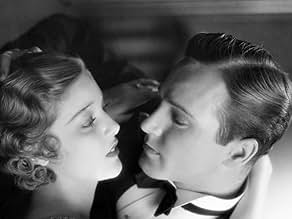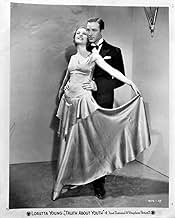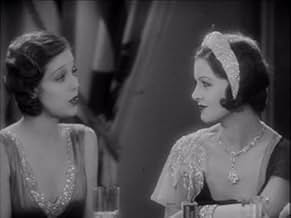Whatever truth about youth is revealed or explored herein is elusive. Youth is foolish, cunning, wise? We are left wondering. Worth seeing because of the cast (Loretta Young at 17, Myrna Loy in her exotic-vamp stage, silent-era relic Conway Tearle, pretty but awkward David Manners). The first minutes of dense and clumsy exposition play like the synopsis of a Victorian novel, which is pretty close to the actual origin of this story (it was a play in London in 1901 starring, among others, Constance Collier in the Loy role). I had to rewind to get a clear sense of the relationships. It doesn't help that during all this verbiage Young is wearing a gown with a downright bizarre decoration directly on the crotch which seems to shout "Pre- Code Costume! Don't listen - look!"
The conflict begins when David Manners, pledged to marry Young, falls instead for nightclub performer Loy whose exotic, cynical, gold-digger comes as refreshing counterpoint to Young's homespun housekeeper's daughter. Loy lip syncs a couple of forgettable songs and dances passably & briefly, looking gorgeous at all times. Melodies of two better songs of the day, "Get Happy" and "Miss Wonderful," are played during nightclub scenes.
Young's line readings are smooth and natural, especially considering her age at the time. But they are, in fact, rattled off too smoothly to register the subtleties of thought that her character is experiencing, so that when she reaches certain conclusions late in the story, they seem arbitrary. Loy's best moment is an outburst of anger while in the arms of David Manners when she finds out he isn't quite the cash cow she thought he was, but the scene collapses when she hurls a vase at him, and misses by a mile. Manners himself is slightly less wooden than usual, but only slightly. He does manage to get a drunk scene half right.
A few inter-titles illustrate a lingering habit from the silent era, while underscoring in some dramatic scenes reminds us that even in 1930 pure unadulterated soundtrack hiss was not always the case.
To those who find the ending shocking, tut-tut. Surprising, maybe.




































